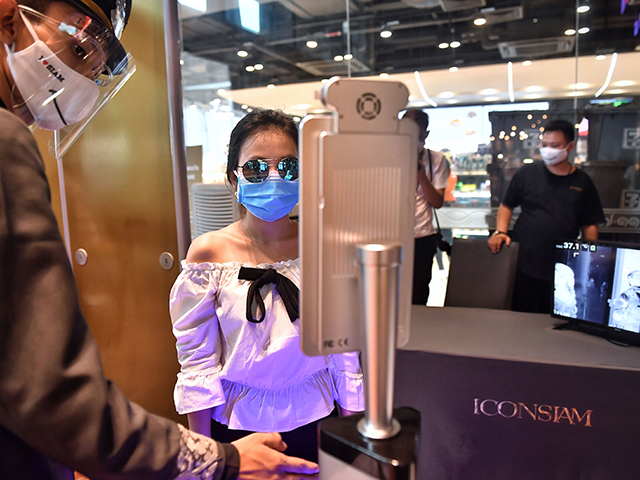Bucheon, South Korea, will begin using an artificial intelligence (AI)-based facial recognition software in January designed to cull images from CCTV cameras and locate, track, and contact trace Chinese coronavirus patients, Reuters reported Monday.
“The system uses an AI algorithms and facial recognition technology to analyse footage gathered by more than 10,820 CCTV cameras and track an infected person’s movements, anyone they had close contact with, and whether they were wearing a mask,” Reuters reported on December 13.
The news agency cited an official proposal for the project submitted by Bucheon to South Korea’s Ministry of Science and Information and Communications Technology (ICT) as its source for the information. Park Dae-chul, a South Korean legislator and member of the nation’s main opposition People Power Party (PPP), provided a copy of the 110-page business plan to Reuters for review in recent days.
The pilot program will go into operation at the start of 2022 and has been funded by both the federal South Korean government and the Bucheon municipal government, an unnamed Bucheon city official told Reuters on December 13.
Bucheon is home to more than 800,000 residents and is located roughly 16 miles outside of Seoul, South Korea’s national capital. In addition to being one of South Korea’s most densely populated cities, Bucheon also has “the highest density of CCTV installations” in South Korea, according to the Chosun Ilbo.
The leading South Korean newspaper reported on Bucheon’s plans to implement the AI recognition software in late February, noting the city had 8,300 CCTV cameras at the time. Bucheon’s government planned in February to increase the number of CCTV cameras citywide to 10,823 by the end of 2021.
“In that case, a dense monitoring network will be equipped with one CCTV [camera] monitoring in every 7 m[eters] horizontal and vertical area [sic],” the Chosun Ilbo observed.
Bucheon city officials have argued the new AI software system will ease the workload of an existing, human-based contact tracing system used by both Bucheon and South Korea nationwide to track coronavirus patients and their close contacts.
“It sometimes takes hours to analyze a single CCTV footage. Using visual recognition technology will enable that analysis in an instant,” Bucheon Mayor Jang Deog-cheon wrote on Twitter in late 2020 while campaigning for federal funding to support the pilot project.
The business plan reviewed by Reuters this week revealed the new facial recognition system “can simultaneously track up to ten people in five to ten minutes, cutting the time spent on manual work that takes around half an hour to one hour to trace one person.”
South Korea’s Ministry of Science and ICT recently said it “has no current plans to expand the project to the national level” and merely hopes to use the AI-based system “to digitize some of the manual labor that contact tracers currently have to carry out [in Bucheon].”
Critics of the system, including human rights advocates and some South Korean lawmakers, say they fear the South Korean government will retain data culled during the pilot program and harness it beyond the needs of the current Chinese coronavirus pandemic.
“The government’s plan to become a Big Brother on the pretext of COVID [Chinese coronavirus] is a neo-totalitarian idea,” South Korean legislator Park Dae-chul told Reuters on December 13.
“It is absolutely wrong to monitor and control the public via CCTV using taxpayers’ money and without the consent from the public,” Park opined.
An unnamed Bucheon city official told the Chosun Ilbo in February “information collected by CCTV for facial recognition is part of an epidemiological investigation in accordance with the [South Korean] Infectious Disease Prevention Act.”
“So, it is possible to collect and use information without personal consent, such as mobile [phone] carrier base station information or credit card details,” he said.
Even if coronavirus patients do not provide consent for Bucheon to track them via its facial recognition software, “the system can still track them using their silhouette and clothes,” an unidentified Bucheon city official told Reuters on December 13. The revelation suggests Bucheon city authorities may override a coronavirus patient’s consent refusal in certain circumstances and track them using the new AI-based system regardless of their response.

COMMENTS
Please let us know if you're having issues with commenting.